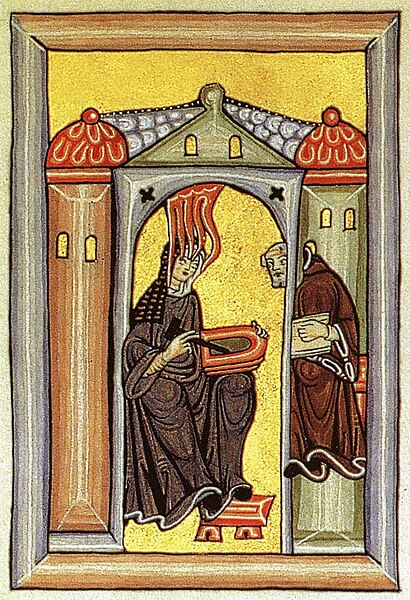Hildegard of Bingen and Adoption
Biography
1098-1179
Hildegard was a religious visionary from early childhood and was an oblate, sent by her noble parents when she was eight to a convent to be raised (she was their tenth child, and considered a tithe to the Church). Her mentor was the Blessed Jutta of Disibodenberg, a recluse.
In 1136 she became abbess of the convent which had grown up around Jutta. She corresponded with and influenced many important people, including the Emperor Frederick Barbarosa, kings, bishops and popes. She was known as a miracle-worker and also wrote a number of important religious and scientific books. Several records have been made recently of her music, including one that made it into the hit charts.
References
Microsoft Encarta 98 Encyclopedia, 1993-97 Oxford Dictionary of the Christian Church, edited by F.L. Cross. (London: Oxford University Press, 1957) Ulrich, Ingeborg. Hildegard of Bingen: Mystic, Healer, Companion of the Angels, translated by Linda M. Maloney. (Collegeville: Liturgical Press, 1993) Flanagan, Sabina. Hildegard of Bingen, 1098-1179: A Visionary Life. (London; New York: Routledge, 1998) Garber, Rebecca L.R. "Medieval German Women Writers (1100-1450): Biographies and Sources." Available at: orb.rhodes.edu/encyclop/culture/Women/BIOGS.html
